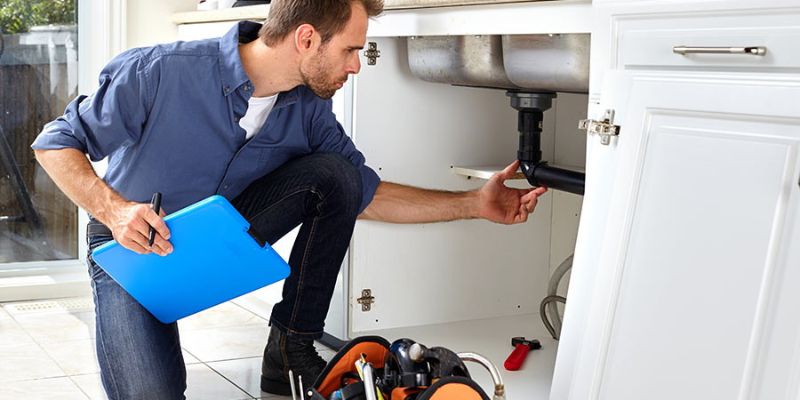Maintaining a well-functioning plumbing system is crucial for the overall functionality and comfort of your home. Regular inspections play a vital role in identifying potential issues before they escalate into costly and disruptive problems. In this comprehensive guide, we will explore “How Often Should I Have My Plumbing System Inspected?” and provide you with valuable insights on how often you should have your plumbing system inspected. So, let’s dive in and ensure your plumbing system remains in tip-top shape!
Why Are Plumbing System Inspections Important?
Before we delve into the frequency of plumbing system inspections, let’s first understand why they are so crucial. Here are a few key reasons why regular inspections are essential:
Prevention of Major Issues:
Regular inspections can help detect minor plumbing problems, such as leaks or corrosion, before they develop into major issues that require extensive repairs or replacements. By addressing these problems early on, you can save significant time and money in the long run.
Safety:
Plumbing issues can pose serious safety hazards, such as water damage, mold growth, or even structural damage. Inspections help identify potential safety risks and allow you to take prompt action to mitigate them.
Optimal Performance:
A well-maintained plumbing system ensures optimal performance. Inspections help identify any underlying issues that might be hindering your system’s efficiency, enabling you to resolve them and restore peak performance.
Extended Lifespan:
Regular maintenance and inspections can significantly extend the lifespan of your plumbing system. By addressing minor problems early on, you can prevent premature wear and tear, thus prolonging the life of your pipes, fixtures, and appliances.
Now that we understand the importance of plumbing system inspections, let’s explore the ideal frequency for these inspections.
How Often Should I Have My Plumbing System Inspected?
Determining the frequency of plumbing system inspections depends on various factors, including the age of your system, the overall condition, and the presence of any specific concerns. While there isn’t a one-size-fits-all answer, here are some general guidelines to consider:
-
Annual Inspections
For most households with relatively new plumbing systems and no known issues, an annual inspection is typically sufficient. Annual inspections allow you to identify any potential problems or areas of concern and address them proactively.
-
Older Homes or Systems
If you live in an older home with aging plumbing systems, or if your plumbing system hasn’t been inspected in several years, more frequent inspections may be necessary. Aging pipes and fixtures are more prone to deterioration and may require closer monitoring to prevent unexpected failures.
-
Seasonal Inspections
In regions with extreme weather conditions, seasonal inspections can be beneficial. For example, before the winter season, it is wise to have your plumbing system inspected to ensure it is prepared to handle the freezing temperatures and prevent pipe bursts.
-
After Major Home Renovations
If you have recently undergone significant home renovations, particularly in areas that involve plumbing, it is advisable to have a post-renovation inspection. This will help ensure that all new installations are properly connected, functioning correctly, and compliant with building codes.
-
Prior to Purchasing a Home
If you are in the process of buying a new home, it is highly recommended to have a thorough plumbing inspection conducted before finalizing the purchase. This inspection will help identify any hidden plumbing issues and give you an accurate understanding of the system’s condition.
-
When Experiencing Specific Problems
If you encounter specific plumbing issues, such as recurring leaks, low water pressure, or unusual sounds, it is essential to have your plumbing system inspected promptly. These problems may indicate underlying issues that require professional attention.
FAQs about Plumbing System Inspections
To provide further clarity, let’s address some frequently asked questions about plumbing system inspections:
FAQ 1: How can regular plumbing inspections save me money?
Regular plumbing inspections can help identify and resolve minor issues early on, preventing them from escalating into expensive repairs. By investing in preventative maintenance, you can save significant amounts of money in the long run.
FAQ 2: Can I inspect my plumbing system on my own?
While basic visual inspections are possible, it is recommended to hire a professional plumber for a thorough and comprehensive evaluation. Plumbers have the knowledge, experience, and specialized tools to identify potential issues that may go unnoticed by an untrained eye.
FAQ 3: What should I expect during a plumbing system inspection?
During a plumbing system inspection, a qualified plumber will examine all visible pipes, fixtures, and appliances. They will check for leaks, corrosion, water pressure, drainage issues, and other potential problems. They may also conduct tests to ensure optimal performance and evaluate the overall condition of your plumbing system.
FAQ 4: Can plumbing inspections help prevent water damage?
Absolutely! Plumbing inspections play a crucial role in identifying leaks and other issues that can lead to water damage. By detecting these problems early, you can take swift action to prevent water damage and the subsequent need for costly repairs.
FAQ 5: How long does a plumbing inspection typically take?
The duration of a plumbing inspection depends on various factors, such as the size of your property, the complexity of your plumbing system, and the presence of any specific concerns. On average, a thorough inspection can take anywhere from one to three hours.
FAQ 6: How do I find a reliable plumber for my plumbing system inspection?
To find a reliable plumber, consider seeking recommendations from friends, family, or neighbors. You can also check online directories or review websites to find reputable plumbing professionals in your area. Don’t forget to verify their credentials, licenses, and insurance coverage before making a final decision.
Conclusion
Regular plumbing system inspections are vital for maintaining the health and functionality of your plumbing system. By addressing minor issues early on and ensuring optimal performance, you can prevent major problems, extend the lifespan of your system, and safeguard your home from potential water damage and safety hazards.
Remember, the frequency of inspections depends on various factors, including the age of your system, the overall condition, and any specific concerns. When in doubt, consult with a professional plumber who can provide expert guidance tailored to your specific needs. So, schedule those inspections and enjoy peace of mind knowing that your plumbing system is in good hands!

